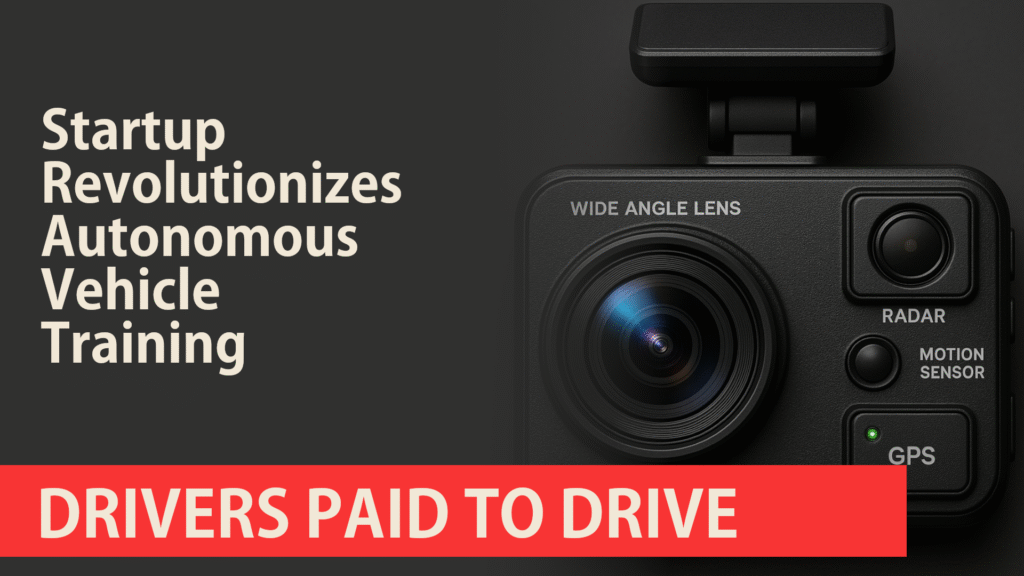
In a parallel world, a new tech startup, DriveData, is shaking up the autonomous vehicle (AV) industry with a novel approach to data acquisition. The company is paying everyday drivers to install and operate advanced dashcams that capture real-world driving data, a strategy proving so popular it’s been likened to a digital Black Friday.
DriveData’s business model is simple: drivers install a specially designed, high-definition dashcam provided by the company into their vehicles and are compensated for the data collected. This data, ranging from video footage and sensor readings to GPS information and environmental conditions, is then used to train and refine AI algorithms for self-driving cars.
“The biggest hurdle for autonomous vehicles is the sheer volume and diversity of data needed to train their AI,” explains Anya Sharma, DriveData’s CEO. “Existing data collection methods are slow and often biased. We’re leveraging the collective driving experience of millions of individuals to create a truly comprehensive dataset.”
The response has been astounding. In just one month since launch, DriveData has amassed over three million miles of driving data, significantly exceeding initial projections. The company reports tens of thousands of drivers signed up within the first week, drawn by the financial incentive – drivers earn between $50 and $200 per month depending on mileage and driving conditions.
“It’s a win-win,” says Mark Johnson, a DriveData participant from Denver, Colorado. “I’m earning extra income, and I feel like I’m contributing to the future of transportation.”
Selling the Data – and the Implications
DriveData isn’t just collecting data; it’s selling it. The company is actively marketing its vast dataset to major autonomous vehicle developers and technology firms eager to improve their AI models. While Sharma declined to disclose specific clients, she confirmed that the data is in high demand.
“Our data provides a level of realism and coverage that’s difficult to replicate through traditional testing methods,” Sharma stated. “We’re providing a vital bridge for companies looking to accelerate their AV development.”
However, the rapid growth and data-sharing model are raising questions about privacy and data security. DriveData insists that all data is anonymized before being sold, removing personally identifiable information like faces and license plates. They also state that the data is encrypted and stored on secure servers.
“We take data privacy incredibly seriously,” assures Liam Walker, DriveData’s Chief Technology Officer. “We adhere to strict anonymization protocols and are committed to transparency with our drivers about how their data is used.”
However, privacy advocates remain cautious. “While anonymization is a crucial step, it’s not foolproof,” warns Elias Thorne, a cybersecurity expert at the Center for Digital Rights. “Re-identification is a real concern, and drivers need to be fully aware of the potential risks before participating.”
Future Expansion
DriveData plans to expand its driver network nationwide and is exploring partnerships with insurance companies and fleet management services. They are also developing new dashcam features, including advanced object detection and hazard recognition capabilities. The company has raised $15 million in Series A funding, signaling strong investor confidence in their innovative approach.